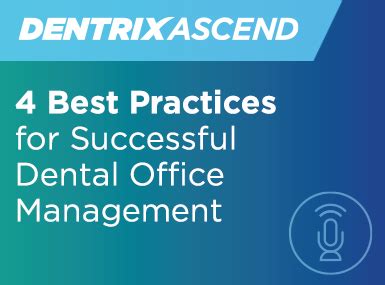Managing finances efficiently is essential in both personal and professional life, and budget sheets are powerful tools that can simplify this process. In today’s digital age, selecting the right productivity software is crucial for creating accurate and effective budget sheets. This guide will explore the importance of budget sheets, highlight the key features to look for in safe and efficient software, and provide expert tips on setting up and securing your financial data. Whether you’re new to budgeting or seeking to optimize your current methods, these insights will help you master budget sheets and make informed decisions for financial success.
Join zokablog.com for a detailed examination of this topic.
1. Importance of budget sheets in personal and professional finance
Budget sheets are essential for both personal and professional financial management. They provide a structured and organized way to track income, expenses, and savings. On a personal level, budget sheets empower individuals to manage their finances effectively, enabling them to monitor spending patterns, set savings targets, and avoid debt accumulation. Maintaining a well-organized budget sheet fosters financial discipline, ensuring that you live within your means and are prepared for unforeseen expenses.
Budget sheets are essential tools in the professional sphere. They empower businesses to manage cash flow effectively, forecast future financial requirements, and make well-informed decisions regarding investments and expenditures. By providing a clear picture of a company’s financial standing, budget sheets facilitate efficient resource allocation and strategic planning. Moreover, accurate budgeting fosters transparency and accountability, essential elements in maintaining stakeholder trust. Ultimately, budget sheets serve as the foundation for sound financial management, guiding individuals and businesses towards financial stability and long-term prosperity.

2. Key features to look for in productivity software for budgeting
Choosing the right productivity software for budgeting requires prioritizing features that promote efficiency, accuracy, and security. A user-friendly interface is paramount, allowing effortless navigation, data input, and report generation. Additionally, customizable templates are essential, providing the flexibility to tailor budget sheets to individual needs, whether for personal finance or business applications.
Automation features like automatic expense tracking and real-time updates can significantly reduce errors and save valuable time. When choosing software, prioritize seamless integration with existing financial tools, such as banking apps or accounting software, to streamline data import and synchronization. Security is paramount; opt for software equipped with robust encryption and multi-factor authentication to safeguard sensitive financial data.
Furthermore, the software’s capability to produce in-depth reports and visualizations, such as charts and graphs, can offer valuable insights into spending patterns and financial well-being. Lastly, it’s crucial to consider the software’s compatibility with different devices and operating systems to guarantee seamless access to your budget sheets from any location at any time.

3. Steps to set up a budget sheet effectively
Crafting a successful budget sheet starts with pinpointing your financial objectives, be it personal savings, managing monthly expenses, or tracking business finances. Begin by enumerating all income sources, remembering to include both regular and occasional earnings. Subsequently, categorize your expenditures into fixed costs (such as rent and utilities) and variable costs (such as groceries and entertainment), yielding a comprehensive understanding of your spending patterns.
To effectively manage your finances, begin by selecting budgeting software that meets your specific requirements. Choose a template that reflects your current financial situation. Next, carefully enter your income and expenses into the software, ensuring you allocate funds for savings and emergency needs. Remember to consistently update your budget sheet to reflect any changes in income or expenses, ensuring accuracy and effective financial control.
Schedule regular monthly budget reviews to account for unexpected expenses or shifting financial goals. Leverage the software’s reporting features to analyze your financial patterns over time, enabling you to make informed decisions and maintain a consistent budget.

4. Expert recommendations on safe software for budgeting
When selecting budgeting software, experts advise prioritizing security, user-friendliness, and seamless integration with other financial tools. YNAB (You Need A Budget) stands out for its proactive budgeting methodology, guiding users to allocate every dollar to a specific purpose while ensuring robust security with bank-grade encryption. Mint, another popular choice, boasts an intuitive interface, automatic expense tracking, and customizable budgeting categories. It also offers alerts for unusual spending patterns and provides tips for maximizing savings.
If you prioritize simplicity and direct bank integration, EveryDollar stands out. It offers a user-friendly platform for zero-based budgeting, ensuring every dollar is accounted for. For those seeking a straightforward way to track daily spending and avoid overspending, PocketGuard is a good choice. It provides a clear view of your remaining spending money after considering bills and savings goals.
QuickBooks is a popular choice for businesses, providing robust budgeting tools in addition to its core accounting features. No matter which software is selected, it’s essential to ensure that it includes
5. Common mistakes to avoid when using budget sheets
Budget sheets can be powerful tools, but several common mistakes can hinder their effectiveness. A frequent error is neglecting to update the budget regularly. A budget sheet is only useful if it accurately reflects your current financial situation, so it’s crucial to consistently record income and expenses.
Failing to account for all expenses, including those that occur less frequently, like annual subscriptions or unexpected repairs, is another common pitfall. This can result in inaccurate budgeting and potential financial shortfalls. It’s important to avoid creating a budget that allocates every single penny, as this lack of flexibility can be challenging to maintain and lead to frustration.
Failing to establish clear financial goals is another common mistake. Without specific objectives, it becomes difficult to track progress or make needed changes. Moreover, neglecting regular reviews and analyses of your budget can lead to missed opportunities to enhance financial habits or refine spending patterns.
Using budgeting software without strong security features can leave your sensitive financial data vulnerable. It is essential to choose tools that incorporate robust encryption and other protective measures to keep your information secure.
6. Integrating budget sheets with other productivity tools
Connecting your budget sheets to productivity tools can dramatically improve your financial management skills. A powerful way to do this is by linking your budget sheet to accounting software such as QuickBooks or FreshBooks. This allows automatic syncing of transactions, categorized expenses, and the creation of detailed financial reports. The integration simplifies data input, decreases errors, and provides a complete picture of your financial well-being.
By linking your budget sheet to your bank account through apps like Mint or YNAB, you gain real-time updates on your income and expenses. This ensures your budget is always accurate, simplifying spending tracking and allowing for necessary adjustments. Furthermore, utilizing calendar tools like Google Calendar to set reminders for bill payments, budget reviews, and financial goal milestones enhances organization and keeps you on track towards your financial goals.
Integrating your budget sheet with collaboration tools like Trello or Slack can significantly enhance teamwork and financial management. Whether you work in a team or share finances with others, these integrations foster seamless communication and ensure everyone is aligned on financial goals and responsibilities. By leveraging these integrations, you maximize the utility of your budget sheet, enabling more informed financial decisions and ultimately, greater productivity.
7. Security tips for protecting financial data in budget sheets
Safeguarding financial data within budget sheets is paramount to thwart unauthorized access and potential fraudulent activity. Begin by selecting software equipped with robust security features, such as encryption and multi-factor authentication, to fortify your data against breaches. It is essential to ensure that the chosen software adheres to industry standards for data protection.
To ensure your budgeting data remains safe and secure, follow these steps:
* Keep your software up-to-date: Regularly install software updates to benefit from the latest security patches and improvements.
* Protect your connection: Avoid using public or unsecured networks when accessing or updating your budget sheets to minimize the risk of data interception.
* Use strong passwords: Create unique and strong passwords for your budgeting software, and change them regularly to prevent unauthorized access.
Safeguard your budget data by backing it up regularly. Utilize cloud services or external drives to prevent data loss. Exercise caution when sharing your budget sheets, employing secure methods and restricting access to trusted individuals only. Furthermore, diligently monitor your accounts and financial statements for any suspicious activity, and promptly report any discrepancies to the appropriate authorities.
8. Benefits of digital budget sheets over traditional methods
Digital budget sheets offer several advantages over traditional, paper-based budgeting. One key benefit is the ability to provide real-time updates and automation. Digital tools automatically track and categorize transactions, eliminating the need for manual data entry and saving time and effort. This automation ensures accurate and up-to-date financial information, leading to more precise financial planning.
Digital budget sheets offer unparalleled accessibility. With access from any computer, tablet, or smartphone, you can easily modify your budget and monitor your finances whenever and wherever you are. This flexibility is especially beneficial for managing your money while on the move.
Digital budget tools go beyond basic spreadsheets, offering features like customizable templates, detailed reports, and visualizations that provide deeper insights into spending patterns and financial trends. This wealth of information empowers users to make informed decisions and manage their finances more effectively. By streamlining the budgeting process, improving accuracy, and offering greater convenience, digital tools offer a clear advantage over traditional methods.
9. Real-world examples of successful budgeting with expert-approved software
The effectiveness of expert-approved budgeting software in achieving financial success is evident in real-world examples. Take Emily, a freelance graphic designer, who utilized YNAB to revolutionize her financial habits. By establishing defined spending categories and leveraging YNAB’s proactive budgeting method, she effectively managed her inconsistent income and eradicated debt. The software’s real-time updates and goal-setting capabilities facilitated efficient fund allocation, culminating in a more secure financial standing.
John, a small business owner, similarly employed QuickBooks to optimize his financial management. By linking QuickBooks with his bank accounts, he enabled automatic transaction synchronization and expense categorization. This integration streamlined his accounting processes, provided comprehensive financial reports, and enhanced cash flow management. The software’s budgeting tools further assisted John in setting and monitoring financial goals, resulting in improved resource allocation and increased profitability.
Expert-recommended budgeting software offers substantial advantages. Through features like automated processes, real-time tracking, and comprehensive reports, users can significantly improve their financial management. This leads to achieving financial goals and enhancing overall financial stability.
Mastering budget sheets with the right productivity software can greatly enhance your financial management, whether for personal or professional use. By choosing tools with user-friendly interfaces, robust security, and integration capabilities, you can create accurate, effective budgets that help you meet your financial goals. Avoid common mistakes, and leverage digital advantages over traditional methods to stay organized and informed. With expert recommendations and practical steps, you can optimize your budgeting process and achieve greater financial stability and success.
zokablog.com